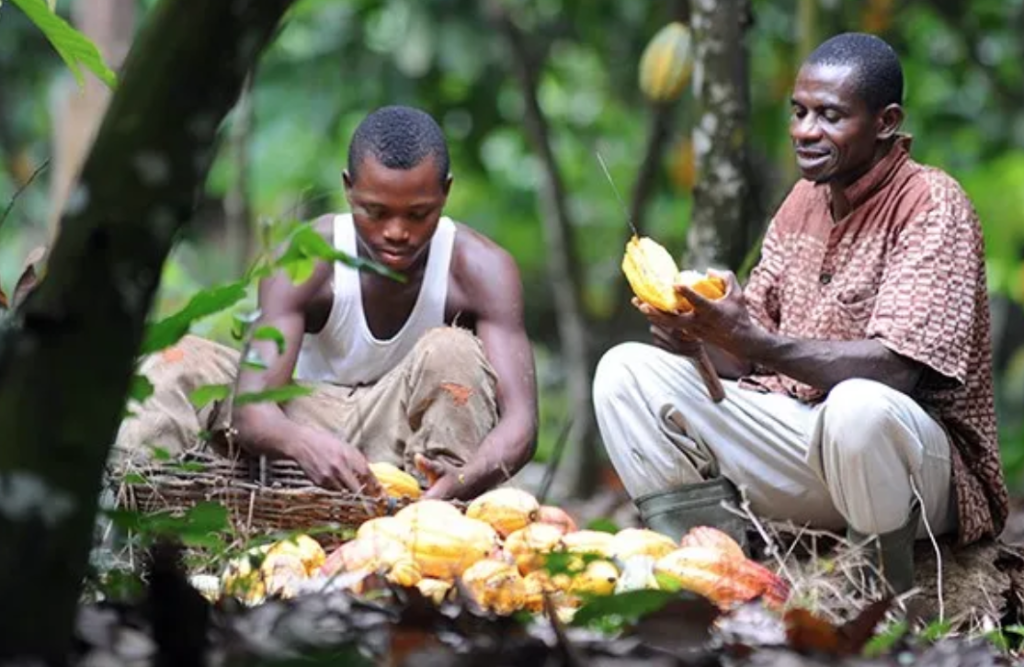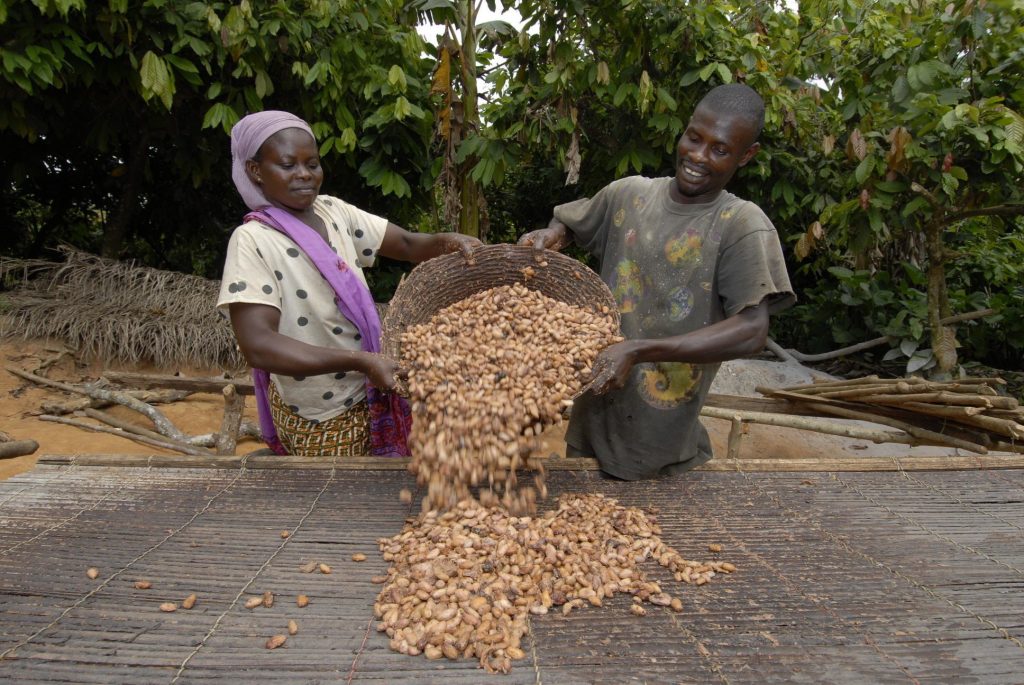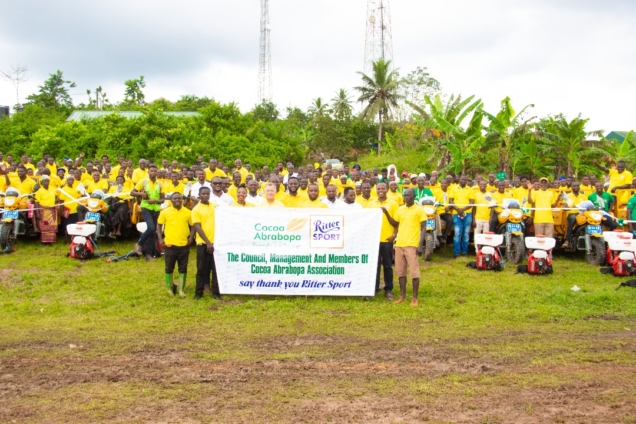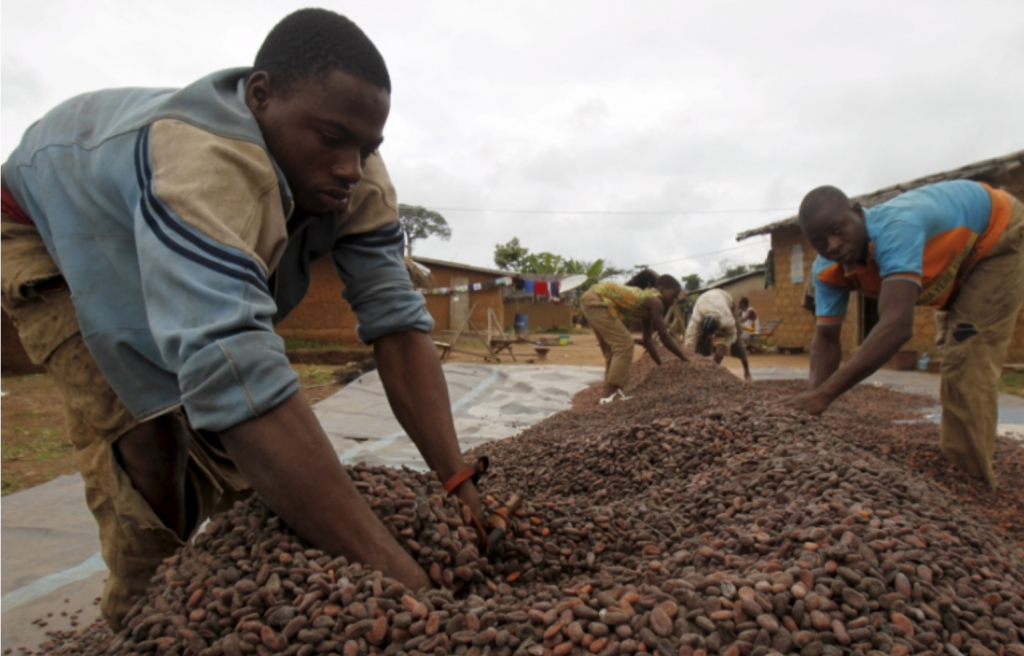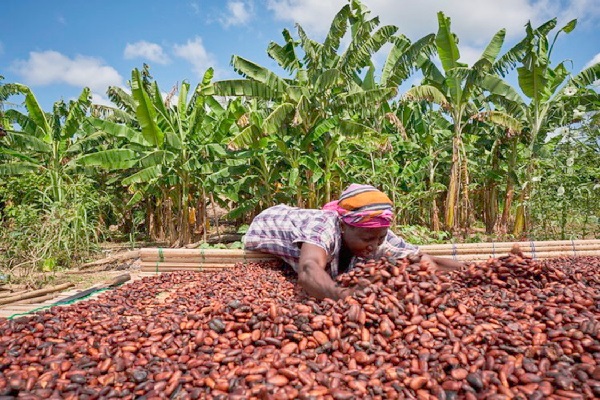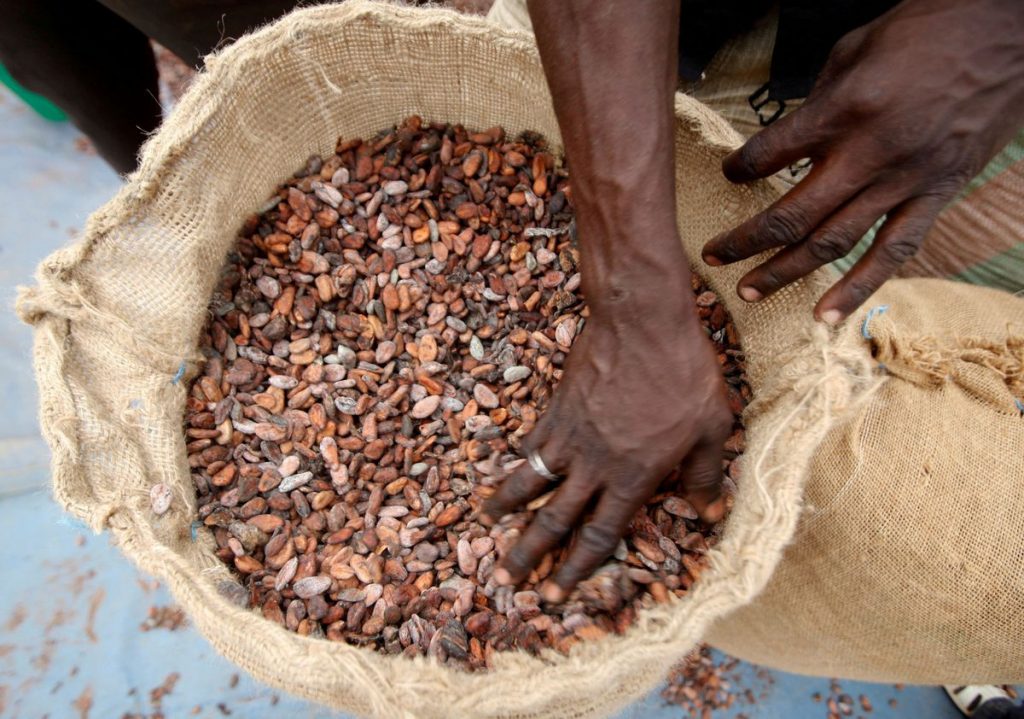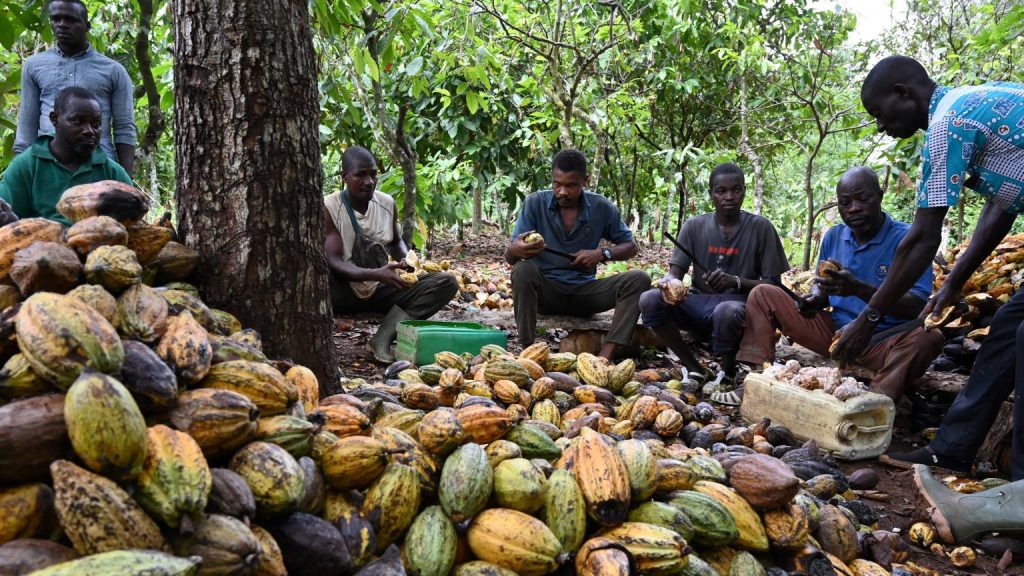Ghana has surpassed Ivory Coast in cocoa production over the half year 2022/23 crop season, according to the latest Cocoa Market Report by the International Cocoa Organization (ICCO).
As of 31 March 2023, cumulative arrivals of cocoa beans in Ivory Coast were lagging behind previous season levels, while the volume of graded and sealed cocoa beans purchased in Ghana since start of the 2022/23 season was reported at 566,846 tonnes, representing an 18 percent increase from the previous year. Despite the increase in Ghana’s cocoa production, total supply of cocoa beans from the world’s top-two cocoa producers for the first half of 2022/23 is estimated at 2,345,846 tonnes – slightly down by 0.2 percent compared to the previous season.
The ICCO report states that the year-on-year reduction of 89,000 tonnes in Ivory Coast cumulative port arrivals of cocoa beans over the first half of the 2022/23 cocoa year, combined with the increase of 85,360 tonnes over the same period in Ghanaian purchases of graded and sealed cocoa beans, results in a slightly negative net effect.
The report also noted that the current state of play is subject to change as the mid-crop progresses. However, the current situation shows that Ghana has overtaken Ivory Coast in cocoa production, a significant development in the global cocoa market.
Commenting on this development, cocoa industry analysts have described it as a momentous development in the cocoa industry as Ivory Coast has been the world’s top producer of cocoa for several years. However, this shows that Ghana is making strides in increasing its cocoa production and improving its quality, which is good news for the country’s economy.
Ghana’s cocoa production has been boosted by several initiatives in recent years, including the introduction of modern farming techniques, better access to credit and markets, and increased investment in infrastructure.

One such initiative is the Ghana Cocoa Board’s (COCOBOD) Cocoa Health and Extension Division, which provides farmers with free seedlings, subsidised fertilisers and pesticides, as well as training on how to properly plant and care for their cocoa trees. This has led to higher yields and better quality cocoa beans, which can command a higher price on the international market.
In addition to these initiatives, Ghana has also sought to improve social and economic conditions for cocoa farmers. For example, government has implemented a programme to eliminate child labour in the cocoa industry, and cocoa farmers are guaranteed a minimum price for their beans to help protect them from market fluctuations.
Despite these efforts, challenges remain in the cocoa industry. Climate change and disease outbreaks have had a significant impact on cocoa production in recent years, and there is a need for continued investment in research and development to address these challenges.
Futures price development
The report also shows that cocoa bean stocks held in Intercontinental Exchange (ICE) Futures licenced warehouses in Europe and the United States are high compared to first half of the 2021/2022 season. Despite their declining trend compared to the levels seen at the start of the 2022/23 cocoa year, stocks of cocoa beans in Europe averaged 185,153 tonnes; up by 20 percent compared to 154,731 tonnes recorded a year earlier.
The average cocoa bean stocks in exchange-licenced warehouses in the United States have also increased, by 7 percent from 318,731 tonnes to 341,497 tonnes.
Regarding futures price developments, the front-month cocoa futures prices averaged US$2,440 per tonne; up by 6 percent compared to US$2,304 per tonne recorded a year earlier in London. In New York, prices of the nearby cocoa futures remained flat at US$2,560 per tonne during the first semester of 2022/23; merely up by 0.4 percent from US$2,550 per tonne recorded during the first semester of the 2021/22 cocoa season.
In March 2023, prices of the front-month cocoa futures contract averaged US$2,553 per tonne in London, up by 12 percent compared to the average price of US$2,273 per tonne for the nearby contract recorded in the same period of the 2021/22 cocoa year. In New York, the average price of the first position contract settled at US$2,778 per tonne, up by 8 percent from US$2,564 per tonne recorded in March 2022.
Credit: B&FT

